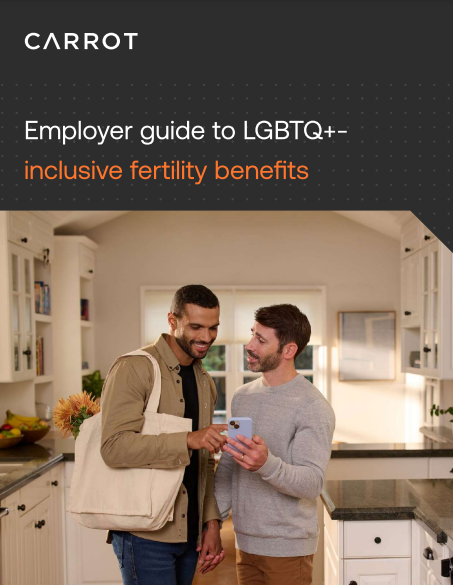Employer guide to LGBTQ+- inclusive fertility benefits

Employer guide to LGBTQ+- inclusive fertility benefits

As LGBTQ+ rights have expanded in the U.S., interest in pursuing parenthood has grown, too. Sixty-three percent of LGBTQ+ millennials plan to start or grow their family. Transgender survey respondents are just as likely to be interested in expanding their families as their cisgender peers. But despite progress made in some areas of life for the LGBTQ+ community, significant barriers still exist to family forming.
Insurance coverage is one major component of this. Typically, health insurance only applies when someone has received a diagnosis of infertility — defined as a heterosexual, cisgender couple trying to get pregnant without success for a certain amount of time. Even if someone outside of a heterosexual partnership is experiencing infertility, getting a diagnosis can be time consuming and expensive. For example, a same-sex cis-female couple using donor sperm and intrauterine insemination (IUI) or in vitro fertilization (IVF) would need to try six or more unsuccessful cycles before receiving an infertility diagnosis.

